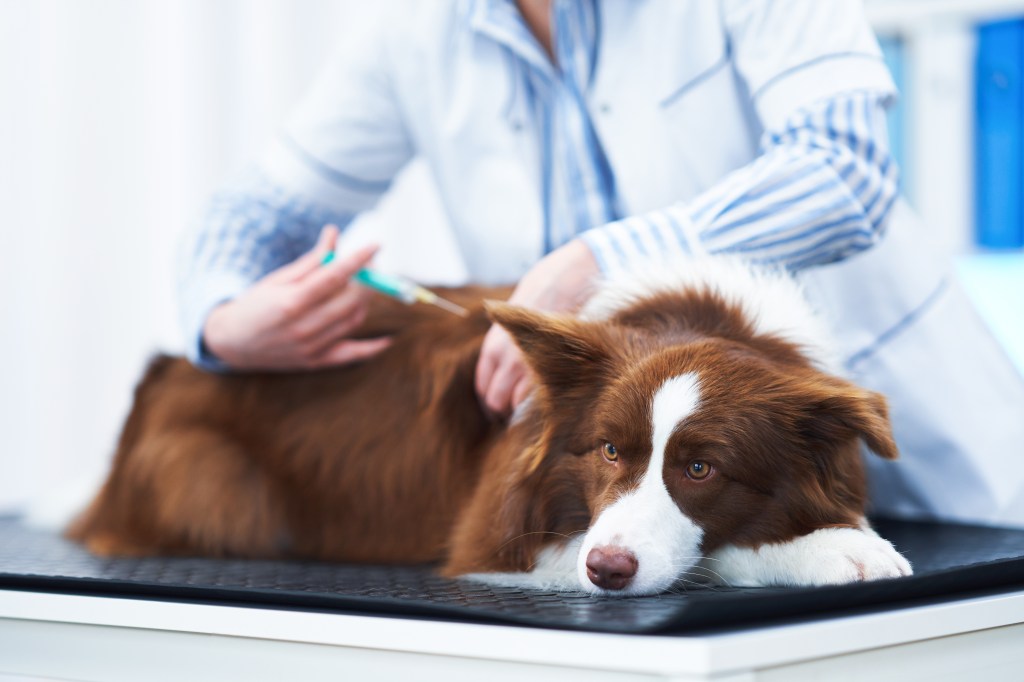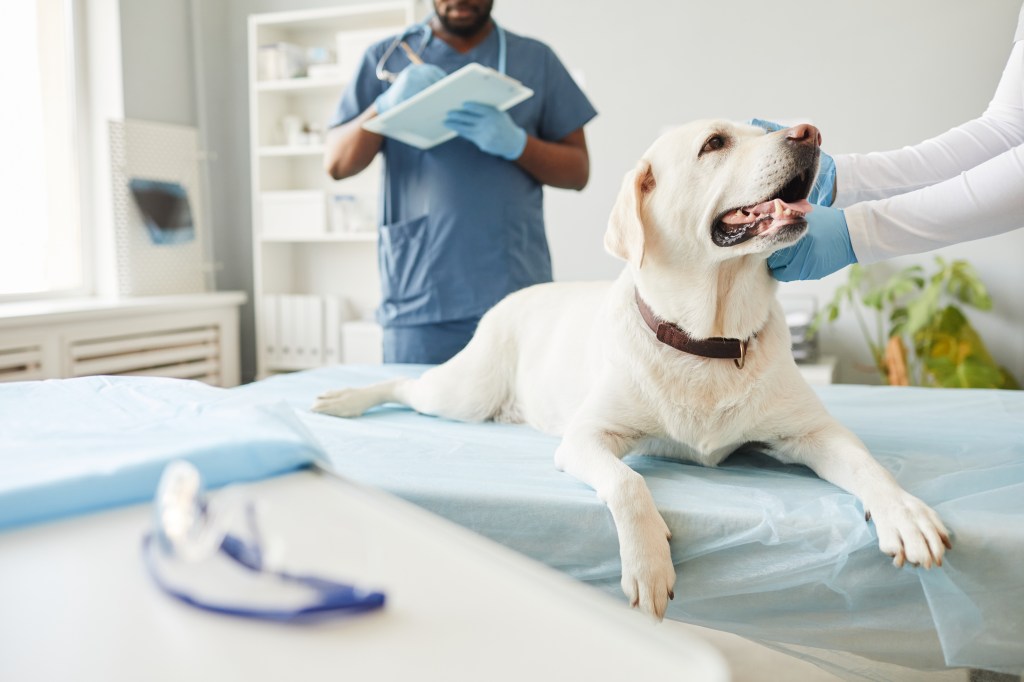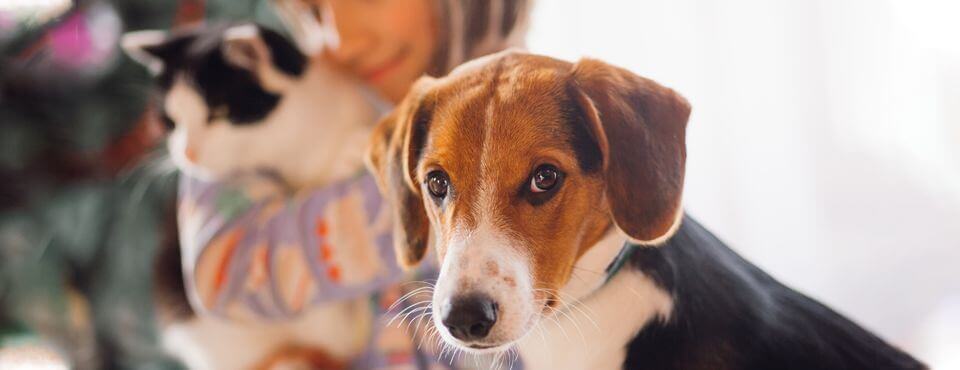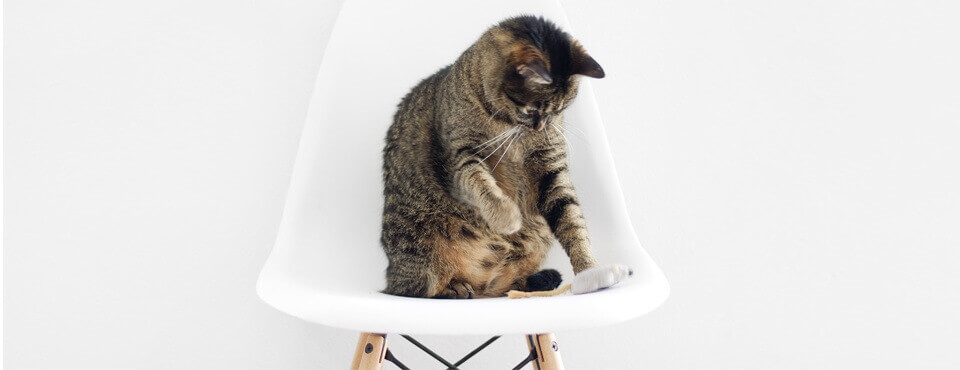Learning your dog has diabetes can seem like daunting news. You may feel overwhelmed and even frightened about how you will handle your beloved companion’s condition. While this is a serious diagnosis, there are treatment options and management strategies that can help maintain your dog’s quality of life.
Diabetes can be managed successfully with a daily routine of insulin treatment, diet and exercise.
The goal of managing diabetes is to get your diabetic dog back to being as healthy and happy as possible.

Starting Insulin Therapy
You will work with your vet to give your dog insulin treatment every day. Insulin treatment is used to reduce elevated blood glucose, which, in turn, reduces or eliminates the signs of diabetes, such as excessive thirst and urination and/or weight loss.
While it can seem intimidating to start administering insulin to your dog, don’t forget that your vet practice team is there to help you! They will teach you everything you need to know about giving insulin injections, recommend appropriate diet and exercise for your dog, and help you monitor your pup’s progress.
While some diabetic dogs can be managed on once daily insulin injections, many dogs need twice daily injections to manage their diabetes. Your vet will calculate a suitable dose for your dog, based on his or her weight and needs. After starting insulin treatment, you should start to see improvement in your dog’s symptoms (e.g. excessive thirst and urination). You should record any changes, including your dog’s appetite and attitude, as your vet may need to adjust your dog’s insulin dose, based on how well your dog is doing and the results of follow-up tests.
Insulin doses need to be managed carefully to avoid a serious complication of diabetes – lower than normal blood glucose, which is called hypoglycaemia. Your vet will advise you on insulin dose adjustments.
Timing of Insulin Injections
There is an important correlation between your diabetic dog’s insulin injections and his or her daily meals. This is because the insulin injection will help to manage increases in blood glucose that occur as your dog digests his or her food. For this reason, timing insulin injections around meals is crucial, in order to achieve the most benefit.
Your vet can advise you as to the type, volume and frequency of feeding, as well as how many calories your dog should consume at each meal.

Your Dog, Nutrition and Diabetes
A consistent, tasty and nutritious diet plays a key role in managing your dog’s diabetes. It is important for diabetic dogs to eat well and to achieve and maintain an ideal body weight and body condition. Your vet can help you select the best diet for your diabetic dog, including suitable treats.
Your vet will work with you to calculate the appropriate caloric intake amount for your dog, which will include any snacks or treats, in addition to his or her daily meals. It’s also best to keep meal content, amount and timing the same each day to minimise blood glucose fluctuations.
A few things your vet may recommend that you include:
- Regular dog food that is balanced and complete or a specially formulated prescription food to help minimise fluctuations in blood glucose.
- Clean drinking water that is always available for your dog and that can be measured to monitor your dog’s progress.
- Snacks or treats that are suitable for diabetic dogs and can be fed as part of your dog’s daily caloric intake.

Other things to Consider
Will my dog eat a new diet?
Some dogs are fussy eaters and introducing a new food is not always easy. If your dog is not eating his or her new food, try giving it a couple of days for him or her to get used to it. You can also try mixing the new food with your dog’s previous food and gradually decreasing the amount of the old food in the mix. It is important that your diabetic dog eats consistently and if your dog is really not taking to the new food, you should discuss alternatives with your vet.
How do I manage my dog’s body weight?
Achieving our dog’s ideal body weight and condition can help simplify the management of diabetes. Your vet can advise you about your dog’s body weight and condition and help you manage his or her weight. Underweight pups need a highly digestible diet containing high-quality protein which should help your dog gain weight gradually. Overweight or obese furry friends need to lose weight gradually.
This Seems Like A Lot To Remember!
Managing the health and nutrition of your diabetic dog is really important and it can seem like a lot. The good news is there are several products that can actually make feeding, tracking and monitoring just a little easier for you – plus, provide you with the reassurance that your beloved pooch is getting just what he or she needs.
App-connected feeders can help you measure and monitor your dogs feed intake. App based diabetes trackers can help you record and manage your dog’s diabetes control.
Is there anything else I should remember?
Don’t forget, most cases of canine diabetes can be managed at home and once stabilised using insulin treatment and diet, affected dogs can live just as long and actively as other dogs. The keys to managing your dog’s diabetes will rely on a consistent daily routine, monitoring signs of diabetes (or improvement thereof). Also, remember how important it is to keep an open dialogue with your vet!
Your vet plays a big role in your pet’s health. Enter your location and get a list of vets near you.
FIND A VET














 Go To United States
Go To United States Austria
Austria Belgium
Belgium Czech Republic
Czech Republic Denmark
Denmark Europe
Europe Finland
Finland France
France Germany
Germany Greece
Greece Hungary
Hungary Ireland
Ireland Israel
Israel Italy
Italy Netherlands
Netherlands Norway
Norway Poland
Poland Portugal
Portugal Romania
Romania Slovakia
Slovakia Spain
Spain Sweden
Sweden Turkey
Turkey United Kingdom
United Kingdom